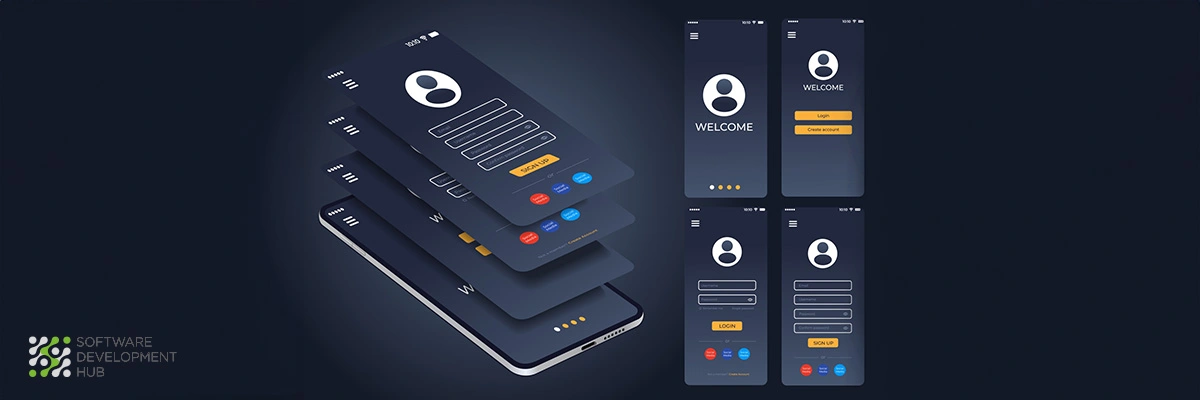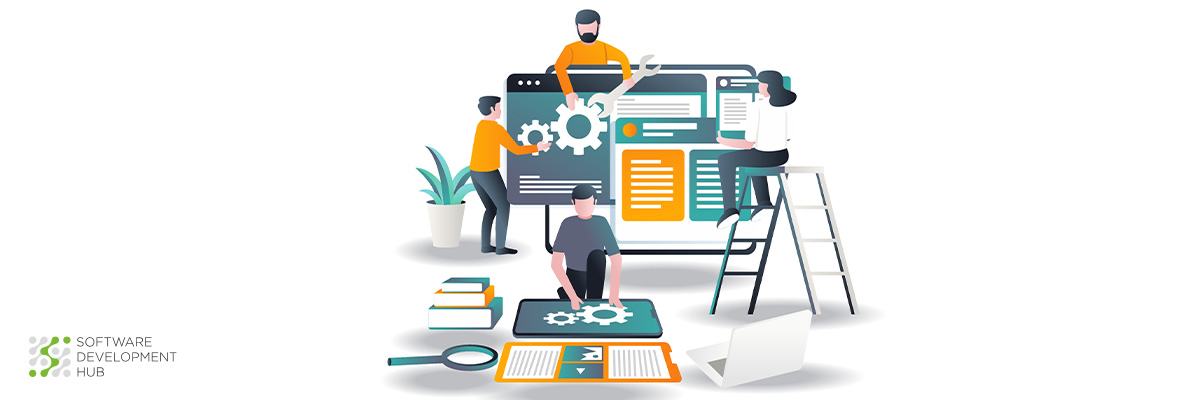Custom Healthcare App Development Services for Secure Patient Care
In today’s digital-first healthcare ecosystem, the importance of secure, user-friendly, and scalable custom healthcare apps has never been greater. As healthcare providers adapt to patient-centric care models, they increasingly rely on software solutions that ensure real-time access, data integrity, regulatory compliance, and streamlined communication.
Custom healthcare app development addresses the specific needs of clinics, hospitals, and health tech startups—enabling secure data exchange, improved diagnostics, virtual consultations, and enhanced treatment outcomes.
This article explores how tailored healthcare software empowers secure patient care, the essential features of such apps, compliance requirements, development process, and why choosing the right tech partner is crucial in 2025.
1. The Growing Need for Custom Healthcare Apps in 2025
Healthcare systems globally are shifting from volume-based to value-based care. This transition emphasizes quality of treatment, cost-effectiveness, and patient satisfaction—goals that digital solutions help achieve.
According to Deloitte’s 2024 health tech report:
- Over 65% of healthcare interactions are now digital.
- The global healthcare app market is projected to reach $189 billion by 2028.
- 83% of healthcare providers plan to invest in custom digital solutions by 2026.
Off-the-shelf apps often fall short of unique provider needs. That’s where custom apps step in—with personalized workflows, specialty-specific tools, and seamless integration into existing ecosystems.
2. Key Benefits of Custom Healthcare App Development
Security-First Architecture
With increasing cyberattacks, patient data security is non-negotiable. Custom apps are designed from the ground up with HIPAA, GDPR, and HL7/FHIR compliance baked in.
Tailored Functionality
From remote patient monitoring (RPM) to EHR integration, custom apps reflect your exact operational needs—boosting efficiency and satisfaction.
Scalability
Custom-built apps can evolve with your organization. Easily add new modules (e.g., telemedicine, e-prescribing) or support more users.
Interoperability
Smooth communication between systems is vital. APIs and data standards like HL7 or FHIR allow seamless sharing with labs, pharmacies, insurance, and EMR systems.
Improved UX
You control the design. That means intuitive navigation, personalized dashboards, and accessibility for all patient demographics.
3. Common Use Cases for Custom Healthcare Applications
|
Use Case |
Purpose |
|
Electronic Health Record (EHR) |
Centralized patient data storage and management. |
|
Telemedicine & Video Consults |
Remote diagnosis and treatment via secure video/audio. |
|
mHealth Apps |
Fitness, medication reminders, mental health support. |
|
Chronic Disease Management |
Track vitals, symptoms, and treatment adherence. |
|
Remote Patient Monitoring (RPM) |
Real-time health data collection via IoT devices. |
|
Appointment Scheduling & Billing |
Automate workflows, reminders, and payment processing. |
|
Patient Portals |
Enable access to health records, test results, and communication with providers. |
|
e-Prescribing (eRx) |
Safe and accurate electronic prescriptions. |
Custom healthcare apps empower clinicians, caregivers, and patients alike—supporting better outcomes while reducing operational load.
4. Must-Have Features in a Secure Healthcare App
Building a secure, high-performing app in 2025 means including these critical functionalities:
1. End-to-End Encryption
Ensure all patient data is encrypted at rest and in transit using industry-standard protocols like AES-256 and TLS 1.3.
2. Role-Based Access Control (RBAC)
Only authorized users (e.g., doctors, admins) access relevant data. This enhances security and compliance.
3. Appointment & Workflow Management
Intuitive scheduling, reminders, and integration with staff calendars reduce no-shows and manual work.
4. EHR/EMR Integration
Real-time syncing of medical history, lab results, imaging, and notes across systems.
5. Secure Messaging
In-app HIPAA-compliant messaging between providers and patients ensures real-time support and continuity of care.
6. Multilingual & Accessibility Support
Support for multiple languages, screen readers, and WCAG 2.1 compliance for inclusive care.
7. Analytics & Reporting
Custom dashboards for medical staff and administrators help track performance, patient outcomes, and compliance KPIs.
5. Security and Regulatory Compliance Standards
Data breaches in healthcare can be catastrophic. In 2024 alone, more than 130 million healthcare records were exposed globally due to cyberattacks. That’s why compliance and security are the cornerstones of custom app development.
Key Standards:
|
Standard |
Focus |
Regions |
|
HIPAA |
Protects patient health information (PHI) |
USA |
|
GDPR |
Data privacy and consent rules |
European Union |
|
HL7/FHIR |
Health data exchange formats |
Global (interoperability) |
|
ISO 13485 |
Medical device software standards |
Global |
|
SOC 2 |
Security & availability controls |
Global (esp. SaaS) |
Partnering with a development firm well-versed in these standards is crucial to avoid fines, data breaches, and reputational loss.
6. Development Process: From Idea to Deployment
At SDH (Software Development Hub), the custom healthcare app development process includes:
Phase 1: Discovery & Requirements Gathering
- Understand workflows, user roles, and business goals.
- Evaluate compliance needs and tech infrastructure.
Phase 2: UX/UI Prototyping
- Design intuitive interfaces for patients and providers.
- Gather early feedback to improve usability.
Phase 3: Backend & Frontend Development
- Modular architecture with scalable APIs.
- Real-time databases for EMR and monitoring.
Phase 4: Security Implementation
- Token-based authentication (OAuth 2.0, JWT)
- Intrusion detection systems (IDS)
- Data encryption and anonymization
Phase 5: Integration & Testing
- Connect to EHRs, payment gateways, and IoT devices.
- Automated & manual QA: performance, security, accessibility.
Phase 6: Compliance Audit & Certification
- Third-party validation for HIPAA/GDPR/FHIR readiness.
Phase 7: Deployment & Ongoing Support
- Cloud or on-premise deployment.
- 24/7 monitoring, updates, and DevOps support.
7. Technologies Used in Custom Healthcare Apps
Modern healthcare applications rely on a robust, scalable, and secure tech stack:
|
Category |
Tools/Technologies |
|
Frontend |
React Native, Flutter, Angular |
|
Backend |
Node.js, Django, Spring Boot |
|
Databases |
PostgreSQL, MongoDB, Firebase |
|
Cloud |
AWS (HIPAA-eligible), Azure Healthcare APIs, GCP |
|
Authentication |
OAuth 2.0, SAML, OpenID Connect |
|
CI/CD & DevOps |
Docker, Kubernetes, GitHub Actions, Terraform |
|
Monitoring |
Prometheus, Datadog, New Relic |
|
AI/ML Integration |
TensorFlow, Azure ML, Google Health AI |
Cloud-native architecture ensures scalability and high availability, especially for RPM or telemedicine apps.
8. Real-World Example: Medcard24™ by SDH
Medcard24™, a patient portal and EHR platform developed by SDH, serves as a flagship example of custom healthcare software done right.
- 500K+ mobile downloads
- 4.8/5 average app rating
- Features: online appointments, medication tracking, lab result storage, doctor messaging.
- Built with GDPR and Ukrainian health data regulations compliance in mind.
This platform showcases how modern design, robust infrastructure, and patient-first logic can transform healthcare delivery.
9. Challenges in Healthcare App Development—and How to Overcome Them
Data Privacy Concerns
Mitigation: Apply zero-trust security, regular penetration testing, and tokenization.
Regulatory Complexity
Mitigation: Work with legal and compliance advisors from Day 1.
Integration Difficulties
Mitigation: Use standardized APIs (FHIR, HL7) and microservices architecture.
User Adoption
Mitigation: Provide training, user guides, and intuitive design.
Device Compatibility
Mitigation: Use responsive designs and test across devices/platforms.
10. Why Choose SDH for Custom Healthcare App Development
SDH (Software Development Hub) is a trusted partner in building secure, scalable, and patient-focused healthcare apps with 19+ years of experience in the software industry.
Our Unique Value:
- Security by Design: Full HIPAA/GDPR/FHIR compliance.
- Experienced Teams: 100+ engineers, with 90% senior/mid-level.
- Agile + DevOps: Accelerate releases while reducing bugs and downtime.
- Global Footprint: Offices in Germany, Ukraine, Canada.
- Domain Expertise: Digital health, diagnostics, EHRs, RPM, and more.
We offer free DevOps consultations, flexible contracts (T&M, Fixed Price, Flex Scope), and transparent project management from start to finish.
Empowering the Future of Secure Digital Health
Custom healthcare applications are not just digital tools—they are healthcare enablers. They connect patients and doctors, streamline care delivery, secure sensitive information, and empower proactive wellness.
As medical institutions, insurers, and tech innovators strive to deliver better outcomes, the demand for secure, custom-built software will continue to grow. Choosing the right development partner, investing in compliance, and focusing on user-centric design are the keys to success.
In 2025 and beyond, secure patient care starts with smart software. So be ready to transform your vision into a healthcare innovation.
Categories
About the author
Share
Need a project estimate?
Drop us a line, and we provide you with a qualified consultation.








